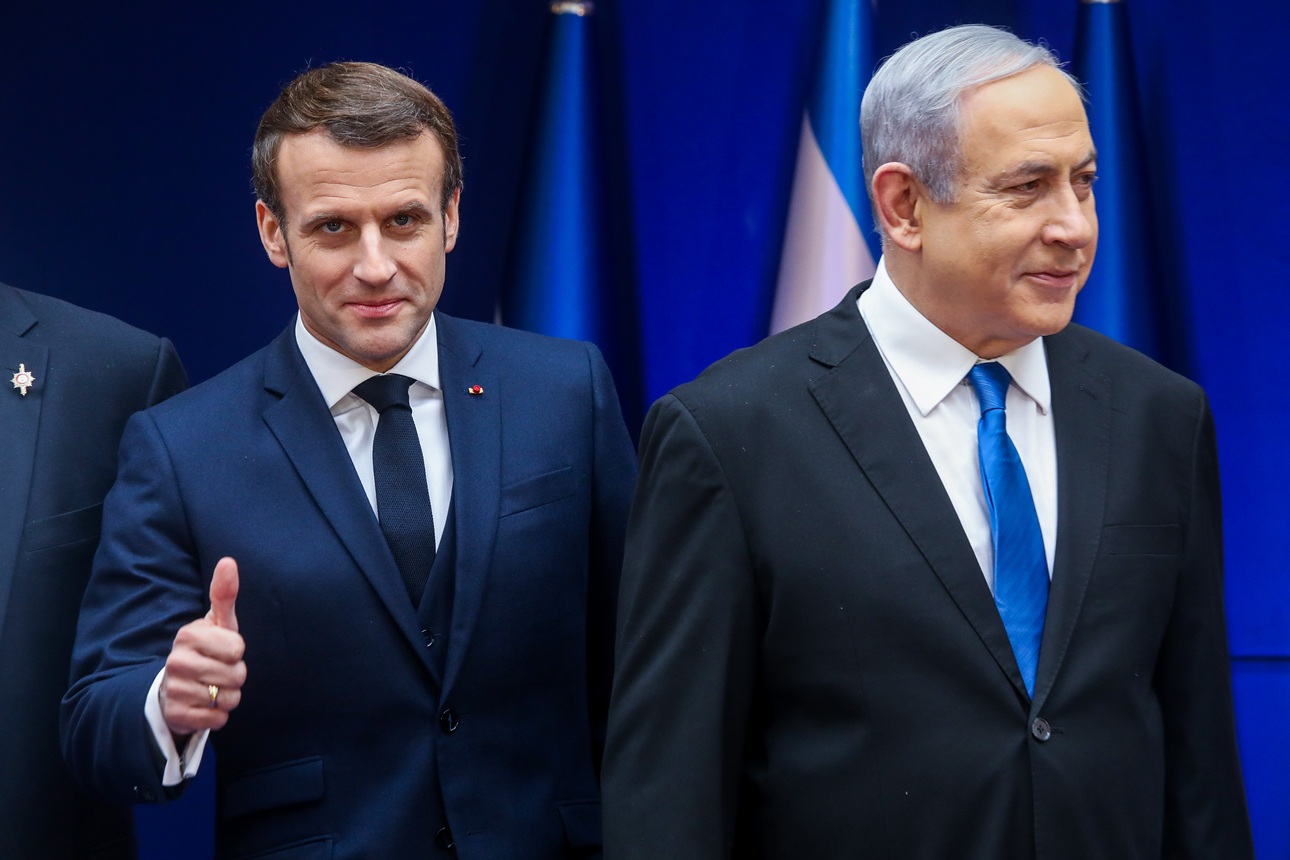The implications of increased international recognition of a Palestinian State
International law stipulates that for a state to exist, there must be a territory, a defined population, a government controlling that territory, and independence from the management of another state over that territory. What are the implications for Israel of more countries planning to recognize a Palestinian state?

Photo by Marc Israel Sellem/POOL
In recent days, France, the UK and Canada have all announced their intention to recognize a Palestinian state at the UN General Assembly in September. A number of other western countries in the coming months are also considering such a move. These countries may join more than 140 states that have already announced in the past that they recognize a Palestinian state.
International law sets out four factual conditions for the existence of a state: territory; a defined population; an effective government that controls the territory; and independence from the control or foreign relations management of another state.
There is significant doubt whether the Palestinian Authority (PA) fulfills these factual conditions: among other things, the Palestinian Authority does not control all aspects of life within the areas administered by the PA, and in certain respects is subject to Israeli decisions.
The traditional position in international law is that a state either exists, or it does not. If it does not meet the factual conditions for statehood, recognition of it has no meaning.
This position does not, however, take into account the realities of modern diplomacy, where the legitimacy of claims regarding the right to an independent state carries substantial weight. In this reality, a critical mass of states recognizing the existence of a state can have broad implications.
Recognition of a state is a political, diplomatic, and legal act.
Politically, recognition of a Palestinian state reflects support for the vision of two-state recognition as a way to resolve the Israeli-Palestinian conflict—a position shared by nearly all countries in the world. Recognition of a Palestinian state also serves as evidence of Israel’s deteriorating status in the international arena due to the ongoing war in the Gaza Strip, the continued suffering of the civilian population there, the creeping annexation of the West Bank, and reports of violence against Palestinian civilians. These factors generate a sense of urgency within the international community to intervene and take some form of action.
Diplomatically, recognition of a Palestinian state is reflected in the fact that approximately 135 countries maintain diplomatic relations with the Palestinians. In 2012, 138 countries supported granting the status of a non-member observer state in the UN to "Palestine." Its admission as a full member state was blocked in April 2024 only due to an American veto in the Security Council. In that case, France supported Palestine’s admission as a full UN member, and the United Kingdom abstained.
This diplomatic recognition also has legal implications. For example, the recognition of "Palestine" by the UN General Assembly served as background for the decision of the International Criminal Court that it has jurisdiction over the Israeli-Palestinian conflict, and on the basis of that jurisdiction issued arrest warrants against Prime Minister Netanyahu and former Defense Minister Gallant.
On the ground, recognition of a Palestinian state, in and of itself, will not immediately lead to the establishment of a Palestinian state—not if Israel does not permit it. However, the rolling process of recognition—with its political, diplomatic, and especially legal ramifications—will significantly hinder the State of Israel in its conduct on the international stage and will constrain its actions in the West Bank and Gaza Strip. The consequences are expected to be more severe than what we have seen so far, and the political pressure on Israel may also translate into concrete steps such as sanctions and harm to economic relations with the world. In addition, growing international recognition will further ease the PA's efforts to “internationalize” the conflict, leading to increased international community involvement in the Israeli-Palestinian conflict, and a Palestinian demand for foreign countries to assist in the struggle against the State of Israel.
Recognition of a Palestinian state is part of the diplomatic “tsunami” currently sweeping over Israel. Central political actors who declare intentions to annex the Gaza Strip and to impose full sovereignty over the West Bank only stoke international reactions and create a sense of urgency among states to act decisively to dissuade Israel from its actions on the ground and the future intentions being signaled by these actors.
It is true that at this stage, the United States is blocking the most significant aspects of international pressure. But even in the United States there is a notable decline in support for Israel, and there is no guarantee that American protection will continue. Recognition of a Palestinian state by France and the United Kingdom, two permanent members of the UN Security Council, would render Israel entirely dependent on the United States’ use of its veto power, which it traditionally hesitates to employ. If the United States in the future refrains from defending Israel, Israel will have to stand alone against international pressure that no state has succeeded in withstanding.
